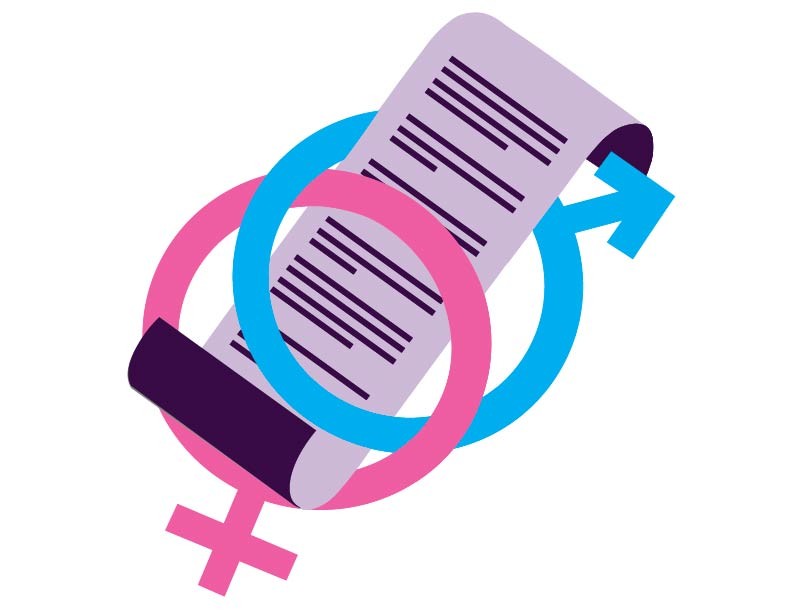The latest version of a proposed University of Minnesota policy on gender identity attempts to reconcile free speech concerns with safeguarding gender expression.
Last week, the Office of Equal Opportunity and Affirmative Action revealed the most recent draft of a proposed policy on gender identity, expression and pronouns. The latest version omits controversial language that described consequences of violating the policy, up to firing or expulsion.
The draft policy, which is subject to change, allows University members to specify a name and gender different from those listed on their legal documents. It also allows them to specify pronouns and grants access to University facilities that match their gender identities, which many gender non-conforming individuals say would make for a more welcoming environment.
A previous section on discrimination, harassment and retaliation that some perceived as stifling free speech was removed. The change is in line with EOAA’s goals for the policy as an educational, rather than punitive document, EOAA director Tina Marisam told the Senate Equity, Access and Diversity Committee last week.
“We got a lot of feedback that the purpose of this policy should be to educate and to inspire our community to engage in respectful behavior. Having that section in that mentioned discipline made it a scarier policy,” she said.
Marisam said the section was redundant, because a pre-existing Board of Regents policy already prohibits discrimination or harassment based on gender identity or expression.
“It doesn’t change anything substantively,” she said. “It’s more of a difference in how this particular policy is framed.”
Unintended or occasional misuse of a pronoun wouldn’t constitute discrimination or harassment according to an FAQ document accompanying the draft. The FAQ addresses the proposed policy’s intent and implementation.
The document states “nothing in this policy is designed to, nor will be interpreted to, interfere with principles of academic freedom or free speech.”
It’s still unclear whether a University member could be punished if they don’t use someone’s preferred pronouns for ideological reasons, said University student senator Ian Smith.
“The First Amendment protects an individual from being required to say something or express a thought they disagree with,” he said. “Regardless of what they say, using a pronoun that is outside of regular lexicon and terminology that has been used, it’s subscribing to an ideology that some at this University may not agree with.”
Smith said he thinks EOAA’s intent with the policy is admirable, but it’s in a “constitutional gray area,” because it could be construed as compelling people to say things they don’t believe.
“If a [transgender] or non-binary individual requests respectfully that you refer to them in a certain way, do it, and return their respect with yours,” he said. “But ultimately, it should be your choice, not the University’s.”
Former Chair of the Faculty Consultative Committee Joseph Konstan, who was involved in the policy’s consultative process, previously felt the policy could potentially infringe on free speech. Konstan wrote in an email he felt he could support the version without the section on discrimination, harassment and retaliation.
“This policy must be, more than anything else, a statement of community values and a tool to moving the community towards those values. A focus on punishment,” he said, “shifts the focus away from aspiring towards being a welcoming and inclusive community and instead creates a distraction and an opportunity to arouse opposition rather than education.”
EOAA will be consulting with student and faculty groups over the next month, said Marisam. They intend to hold an informational session at the April meeting of the University Senate, with a prospective vote in May. If passed, the policy would undergo a 30-day public comment period before implementation in the fall.
“The written policy is only a small part of what matters here,” said Konstan. “What’s really critical is the process by which this policy is presented to, debated by and eventually either adopted by or rejected by the campus community.”








